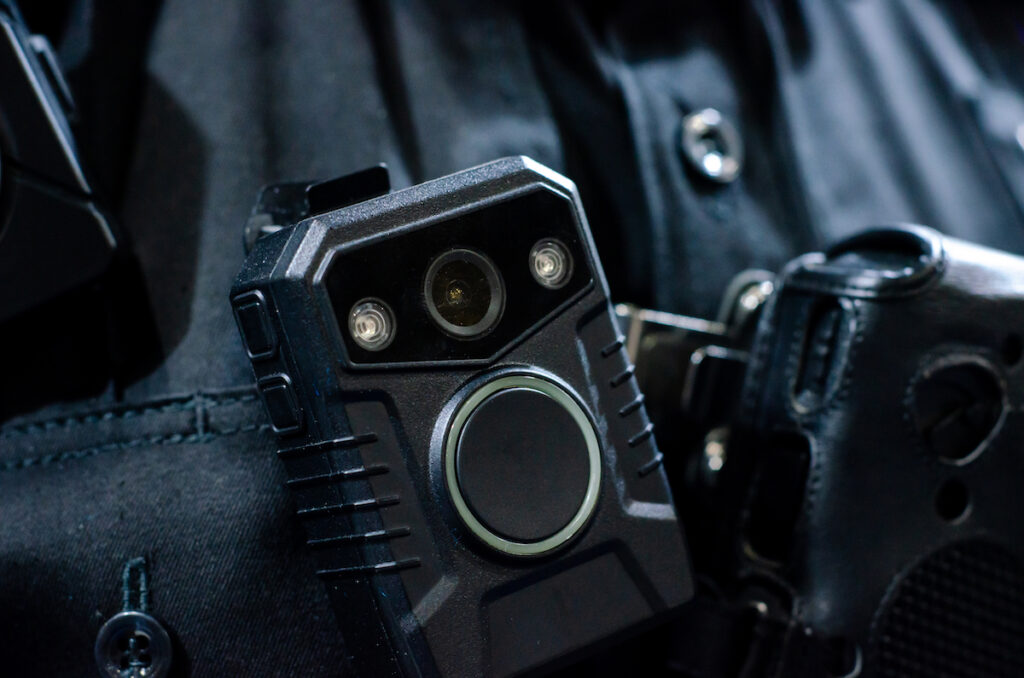Ministers have been criticised for the ‘shamefully slow’ rollout of body-worn video cameras for frontline police officers in Scotland.
Police officers now have fewer cameras than they did two years ago according to a Freedom of Information request submitted by the Scottish Conservatives.
The FOI revealed that there are 849 cameras currently available to the force, 100 fewer than there were in 2022.
It follows an appearance last month by Chief Constable Jo Farrell at Holyrood, where she was unable to give a timescale for when the rollout would be completed.
The Chief Constable followed up her recent Criminal Justice Committee appearance with a letter dated 4 October confirming the intention to deploy devices to an initial tranche of 10,000 officers and staff from Spring 2025.
But shadow justice secretary Liam Kerr said it is “common sense” that officers should have access to the equipment and criticised government for the delay.
Kerr said that the protective kit would instantly give greater protection to officers in the line of duty and that video technology could also help tackle court backlogs.
He said: “It is shocking that Police Scotland now have access to even fewer body-worn cameras than the already pitiful number available to hardworking officers two years ago.
“Officers elsewhere in the UK have access to this protective kit and it is just common sense that all of them should. Yet fewer than 900 in Scotland now do, which is a damning indictment of the SNP’s neglect of our police.
“Their planned rollout of these cameras has been shamefully slow and beset with constant delays. The Chief Constable could not even give a timescale as to when the rollout will be completed when questioned last month in Parliament.
“That simply is not good enough when we know these cameras give greater protection to officers and could help ease the backlogs in our court system.”
Police Scotland signed a three-year £13.3 million contract with Motorola in June for 10,500 Home Office-approved VB400 cameras and supporting back-office systems.
Lady Elish Angiolini recommended a national roll-out of BWV in her independent review of police complaints, published in 2020.
In a national public consultation on body worn video, Police Scotland received more than 9,000 responses showing overwhelming support for its introduction, with 81 per cent agreeing that it would increase public confidence in policing.
A Police Scotland spokesperson said: “We have conducted a complex procurement exercise for body worn video this year and our supplier is now working with us to ensure it works across the criminal justice system to so that footage can be managed and shared with partners to speed up the process and deliver better experiences for victims and witnesses.
“The technology is long overdue and will be fundamental to supporting the wellbeing of our frontline. It will also mean less time wasted attending trials that don’t go ahead and will mean better evidence gathering to secure the right outcome first time for victims of crime.
“The Chief Constable has been clear that nobody wants to see this technology rolled out more than she does and has committed to keeping the Scottish Parliament’s Criminal Justice Committee updated as we progress.
“Current models of body-worn cameras are not being immediately replaced when they come to the end of their life, creating a temporary reduction in numbers.”
A Scottish Government spokesperson said: “The Chief Constable has made very clear that the national introduction of body worn video is a priority for Police Scotland, and ministers have welcomed both the awarding of a contract to roll the technology out across the service, and the Chief Constable’s commitment to do so from Spring 2025.
“Our record funding of £1.55 billion for Police Scotland this year has enabled a contract to be awarded to implement body worn video for officers and staff across the country.”
